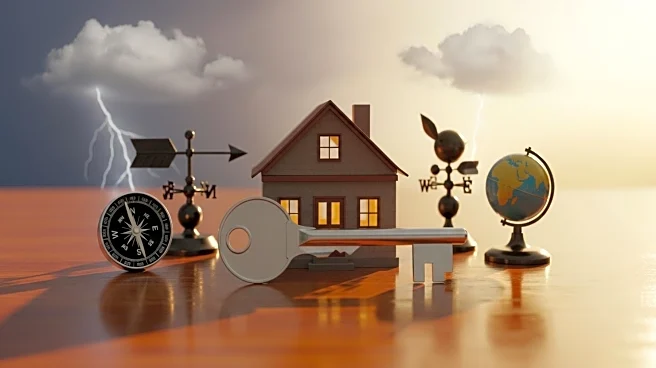What is the story about?
What's Happening?
Experts are raising alarms about the growing home insurance crisis in the United States, with liabilities exceeding a trillion dollars in some regions. A report from Harvard University's Joint Center for Housing Studies highlights a 20% rise in home insurance premiums from 2020 to 2023. The crisis is exacerbated by extreme weather events such as wildfires, hurricanes, and floods, which are becoming more destructive due to climate change. States like California and Florida are heavily impacted, but Texas is also at risk, with over $1 trillion in property value threatened. The gap between perceived and actual climate risks is contributing to the crisis, leaving many homes uninsured or facing skyrocketing premiums.
Why It's Important?
The home insurance crisis poses a significant threat to the U.S. housing market and economy. As extreme weather events become more frequent and severe, the financial burden on homeowners and insurers increases. This could lead to a rise in uninsured properties, affecting property values and market stability. The crisis highlights the urgent need for policy interventions and increased awareness of climate risks. Addressing these challenges is crucial for protecting homeowners and ensuring the resilience of the housing market in the face of climate change.
What's Next?
In response to the insurance crisis, lawmakers in affected states are considering legislation to address coverage gaps and improve market stability. Homeowners are encouraged to engage with elected representatives and stay informed about environmental risks. As the situation evolves, continued research and policy development will be essential to mitigate the impacts of extreme weather on the housing market. Public awareness and education on climate risks will also play a critical role in shaping future responses to the crisis.

















